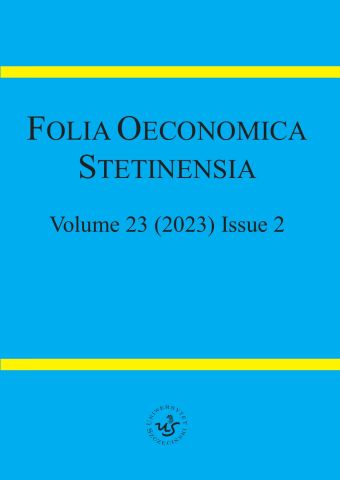Fiscal and Monetary Measures in Achieving Green Ecology: Evidence from Nigeria
Fiscal and Monetary Measures in Achieving Green Ecology: Evidence from Nigeria
Author(s): Cordelia Onyinyechi OmoderoSubject(s): Economy, Business Economy / Management, Energy and Environmental Studies, Financial Markets
Published by: Wydawnictwo Naukowe Uniwersytetu Szczecińskiego
Keywords: Green-financing; eco-friendly budget; CO2; carbon taxation; inflation
Summary/Abstract: Research background: In light of the apparent density of the carbon output in the ecosystems of emerging regions, the United Nations has established a manual that puts an emphasis on carbon taxes as one of the quick fixes to environmental uncleanness in evolving states. Purpose: The purpose of this research is to look into the impact of monetary and fiscal policy measures on reducing carbon emissions in the ecosystems of Nigeria. Research methodology: The study employs the Autoregressive Distributed Lag (ARDL) co-integration technique or the bound co-integration technique to confirm the existence of long and short term nexus and the influence of selected financial instruments on pollutant reduction. The study spans 1991 to 2021 and relies on World Bank Development Indicators data on inflation and CO2 discharges in millions of metric tons. The statistics on tax earnings is derived from the Central Tax Authority in billions of national currency, but the figures on the state’s outlay and broad money supply are generated from the database of the Apex Bank in the country. Result: According to the analysis, financial instruments are not yet being directed toward reducing air pollution and environmental devastation in the country. Further investigation reveals that tax revenue gathering is positively irrelevant, but CO2 has a strong positive effect on its reduction at lag 1, implying that a more eco-friendly financial strategy is required to combat environmental hazards in Nigeria. Novelty: A Green financial system is a big issue of contention in the global public discussion about rising temperatures. Presently, there are few studies on the management of pollution using financial instruments in emerging regions. This study will serve as one of the leading investigations to align with the United Nations goal to restore our biodiversity through green fiscal and monetary policies. The study strongly suggests that the Nigerian government should pursue green fiscal and monetary mechanisms that include: issuance of green bonds; potential and cost-effective green payment plans, carbon taxation, and ecologically responsible national budgets and investment opportunities.
Journal: Folia Oeconomica Stetinensia
- Issue Year: 23/2023
- Issue No: 2
- Page Range: 311-330
- Page Count: 20
- Language: English

